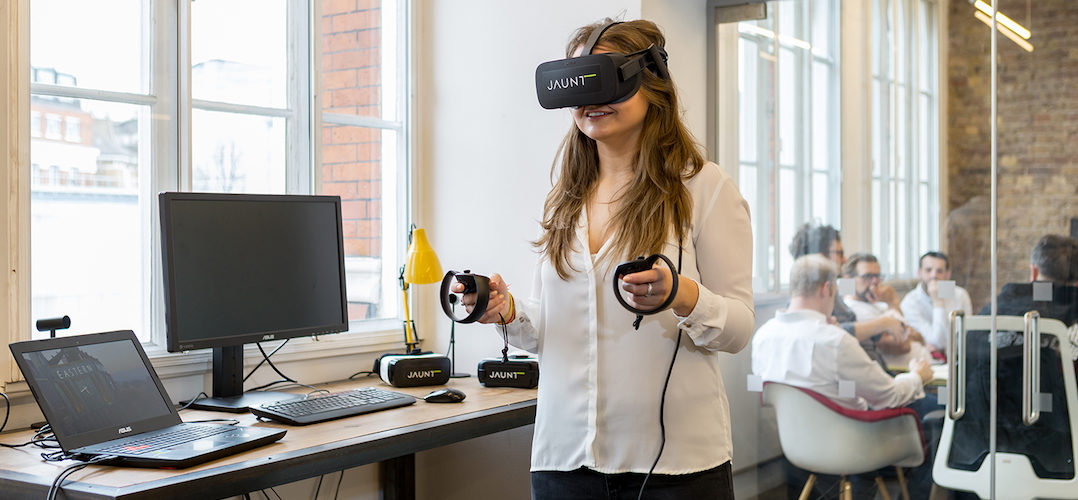This is the latest in a series of posts from leading VR and AR influencers in the run-up to MIPTV 2017. The posts, all of which are available here, are coordinated by VAST MEDIA, a Berlin-based media consultancy.
I was recently scrolling through IMDb’s top 250 movies list, and it got me thinking about how diverse cinema can be. Even looking at the collection of blockbuster Steven Spielberg films shows that film stretches as far as your imagination can.
The likes of Jurassic Park, Close Encounters of the Third Kind, and Minority Report took audiences to new worlds; worlds that they couldn’t have conceived of at the time. For around 90 minutes, films transport people. After all, that’s what cinema is about: escapism. And clearly it’s what audiences want; Spielberg films have grossed over $4bn to date.
VR makes this escapism even more immersive, and it’s still in its infancy. I believe it’s as radical as the Lumiére Brothers’ Arrival of a Train, which had audiences out of their seats as the train seemingly travelled towards them. As more filmmakers get to grips with VR, we should start to see films in the mould of Spielberg blockbusters. That’s not to say that current VR films aren’t transporting people; they’re taking people from all around the world to places they once might never have been able to access – from Nepal before its tragic earthquake, to Manchester City’s Etihad stadium.
What I think we’ll start seeing more of are VR films that push the boundaries of our imaginations. Films that truly make us feel like we are somewhere we could never have before envisioned. Films that make us feel just like the audiences watching Jurassic Park did in 1993. It’s a film that combined the most cutting-edge technology at the time with 100-year-old rules of filmmaking – honed to perfection by a master. VR can follow this model.
Directing the audience
As VR filmmakers start playing with convention, looking at how they can seemingly defy the laws of physics, it’s vital that they bear in mind the tried and tested techniques of directing. Just because you’re taking audiences to unchartered realms, it doesn’t mean they won’t react like they’re still on this planet.
It comes down to three things: movement, lighting and sound.
Thinking about the movement of the camera is critical because it becomes the space occupied by the viewer. Each time there’s a cut, the viewer must have the time to mentally adjust, which means the director of a VR film doesn’t have the luxury of making these quick cuts. Be wary of the fact that the audience doesn’t have the opportunity to look away from the film; camera movement must therefore be smooth enough for the viewer to forget they’re watching something, to properly lose themselves in this world that’s been created.
But how do you direct the audience so they don’t miss action crucial to the experience? That’s where the magic of theatre comes in. A standard film has complete control over what you see. Yet when you see a play, you have freedom to look where you want to. It’s why theatre directors spend a lot of time planning lighting and sound; it’s to direct your attention.
This should be the same with VR. A loud bang to the left will make the viewer look left. A certain character or object in a spotlight automatically draws focus.
Just like on stage, actors in the VR space must always be acting – there is no ‘behind-the-scenes’ because the camera captures everything – and their reactions can be used to direct the viewer’s gaze, too.
For the same reason, VR filmmakers must be directing the action while completely off set. Yet directors fresh to VR have more control than they might think. If you’re creating a new world in VR, sticking to these points will help audiences enjoy it how you want them to.
Think big and try to bring a real physicality to this new environment. The virtual world is your oyster.
Find out more about MIPTV 2017’s unprecedented focus on VR & immersive content here…




